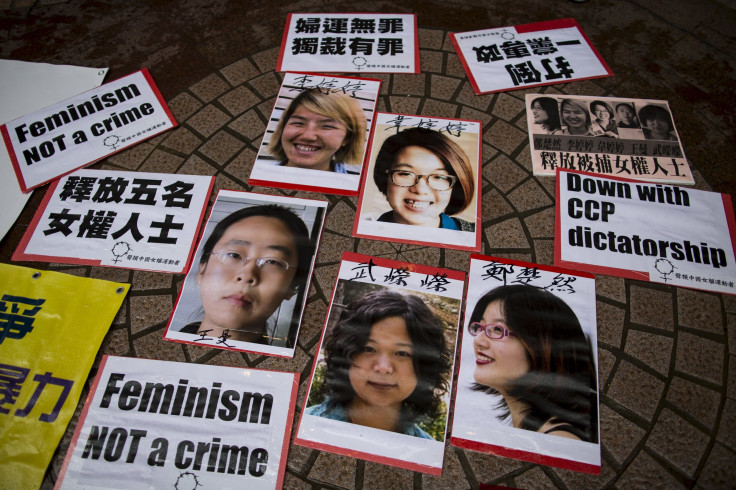Chinese Song 'Xiao Juan' By Tan Weiwei Goes Viral As It Laments Gender-Based Violence In China
KEY POINTS
- "Xiao Juan" was released on Weibo on Dec. 11
- Its title refers to the alias the authorities give women who experienced domestic abuse
- The song has so far reached 320 million views on Weibo
Chinese pop song "Xiao Juan" (Little Juan), from Tan Weiwei's album "3811," has become a sensational hit since its Dec. 11 release as its lyrics highlight gender-based violence in the country.
In the song, the pop star sings about the way women are beaten, burned alive, shaved bald, confined and murdered. "Know my name, remember my name, when can the same tragedy stop recurring?" Its lyrics go as per SCMP.
"Xiao Juan" is a pseudonym that has been often used by the authorities to refer to victims of domestic violence.
Since its release on Weibo, listeners have thought of the lyrics as a reference to some of the violent abuses committed against women in the country. "The roar of the times should not be buried. This is a war song," The Guardian quotes one of the song's commenters as saying.
"Using a fist, using gasoline, using sulfuric acid," 38-year-old Tan sings in her latest song. "Being flushed into the sewer, sinking from a wedding room into a riverbed. Being stuffed into a suitcase, frozen in a fridge on a balcony," she goes on as per Sixth Tone.
For the past 6 months, Tan has been releasing songs that tell the stories of women from various walks of life—a taxi driver, a charity worker, a single mother and a 60-year-old woman who cannot read. However, it's "Xiao Juan" that has become viral as it laments the demise of some women in China this year.
One of the horrific incidents the song reminds listeners of is the grisly murder of a woman in Hangzhou in July. Her husband allegedly killed her, dismembered her body and got rid of it in a septic tank.
There is also the tragic fate of Lhamo, a Tibetan vlogger who was killed by her ex-husband. The man reportedly doused the vlogger with petrol and set her on fire while she was in the middle of a livestream for her fans.
According to SCMP, the song also tackles misogyny as it mentions words with negative connotations that have radical women in them, such as "jidu" (jealousy), "nu" (slave), "changji" (prostitution) and "biao" (bitch).
The song has so far received a lot of support and appreciation from listeners and has reached 320 million views on Weibo.
One of the listeners on the platform expressed worry about the song, saying, "I'm afraid this might get censored soon." Meanwhile, another listener praised Tan for her guts. "She was bold to speak out," they said.
Tan has become one of the first mainstream musicians in China to address gender-based violence. Her album's name is a combination of her age, 38, and the number of songs in it.
"The birth of the album is a witness to the life stories of all ordinary women who also show greatness," Tan said during the online concert in which her album "3811" was launched. "I wanted to grow up with them, love what they love, be sad at their loss, and enjoy the unknown with them," she said.






















